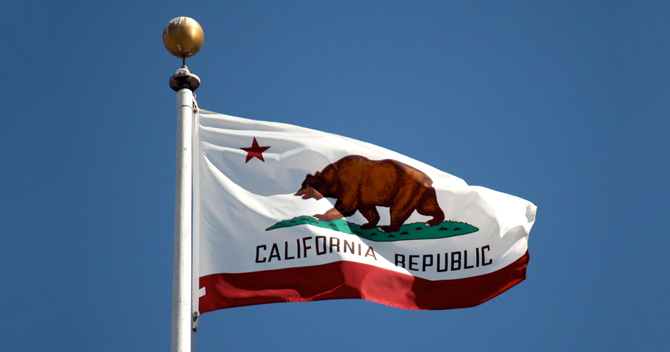
Los Angeles County breweries, wineries and distilleries gained the ability to offer outdoor, on-site service without serving bona fide meals on March 20.
“It’s unclear why the county continues to discriminate against breweries and wineries, but it finally came to its senses and revised the guidelines allowing Transplants [Brewing] and other independent businesses to begin getting back to business,” attorney Khail Parris of Parris Law Firm said in a press release. “These establishments have been hit the hardest because they rely on regular customers to make a profit, and between the pandemic and the completely inconsistent guidelines provided by the County of Los Angeles, they were barely holding on.”
Under the new county order, breweries, wineries and craft distilleries may open for indoor service capped at 25% capacity if all alcohol sales are accompanied by bona fide meals, which can be provided in partnership with a food vendor. Businesses without food service may offer outdoor on-site service.
In June 2020, the California Department of Public Health rescinded an order for all on-premise alcohol sales to be accompanied by a meal purchase. But as cases of COVID-19 surged in the state last summer, Gov. Gavin Newsom ordered the shutdown of all indoor dining in July 2020. With that order, the meal requirement returned for outdoor service.
In its lawsuit, which was filed on September 30, 2020, in the Superior Court of the State of California in the County of Los Angeles North District, Transplants alleged that Los Angeles county’s ban on the outsourcing of food services from third-party vendors at breweries and bars without on-site kitchens was “causing substantial and irreparable harm.”
“The distinction between food prepared in an on-site kitchen versus that prepared by a third-party vendor is arbitrary, has no scientific basis and is not necessary to address the risks of viral transmission,” Transplants wrote. “Consumption of alcohol along with food prepared by a third-party vendor creates no greater risk of viral infection than consumption of alcohol with food prepared at an on-site kitchen.”
Since the change in regulation, Transplants has hosted various food trucks and other third-party vendors to meet the meal requirement for indoor service, according to its Facebook page.
California Amends Prop 65 to Include Warnings at Time of Delivery for Alcoholic Beverages
An amendment to California’s Safe Drinking Water and Toxic Enforcement Act of 1986 (Proposition 65) will require an additional health warning at the time of delivery for alcoholic beverages.
Prop 65 requires warnings about the health risks of consuming alcohol at the point of sale for off-premise consumption or on menus for on-premise consumption. However, the law has been amended twice to address beverage alcohol’s expanding e-commerce channel. The first amendment took effect in 2018, which requires manufacturers to include warnings on their websites and in packages shipped directly to consumers.
The second is slated to take effect April 1 and requires that a warning be provided to the consumer before or at the point of delivery “either on or in the shipping container or delivery package or by email or text message as part of an electronically delivered receipt or purchase confirmation,” according to a consent judgement between the state of California and 13 defendants, including on-demand alcohol delivery platforms Drizly and Saucey.
“Suppliers shipping direct-to-consumer should provide Prop 65 warnings in or on shipment boxes and via an electronic receipt to ensure compliance with the new Prop 65 amendment,” McDermott, Will & Emery partner Alva C. Mather, counsel Nichole D. Shustack and staff attorney Isabelle R. Cunningham wrote on the firm’s blog.
Third-party deliverers are “likely on the hook for failure to comply” with the newest amendment, Mather, Shustack and Cunningham wrote.

Oregon Tax Hike Bill in ‘Holding Pattern’
The bill that would have hiked Oregon malt beverage taxes by $70 per barrel is in a “holding pattern,” Oregon Brewers Guild executive director Christina LaRue told Brewbound.
The lobbyists and lawmaker behind that bill (House Bill 3296, which aimed to raise taxes on alcohol to fund addiction recovery efforts in the state) have introduced another bill (House Bill 3377) to create a task force composed of representatives from the Oregon Health Authority (OHA), Oregon Liquor Control Commission (OLCC) and recovery and alcohol industries.
House Bill 3377 would require the OHA “to study optimum minimum pricing of malt beverages, wine and cider to allow consumer access and discourage overconsumption.”
LaRue said no other states have “optimum minimum pricing” for alcoholic beverages.
“Our push is for a deep dive study into current funding of these services,” she said, adding that only 3.5% of Oregon brewers’ excise taxes are currently allocated to recovery services. “We would like to see more, if not all, of those funds be allocated to the recovery services.”
Oregon brewers currently pay $2.61 in taxes on each 31-gallon barrel of malt beverage they produce.
A work session on House Bill 3377 is scheduled for April 5.
